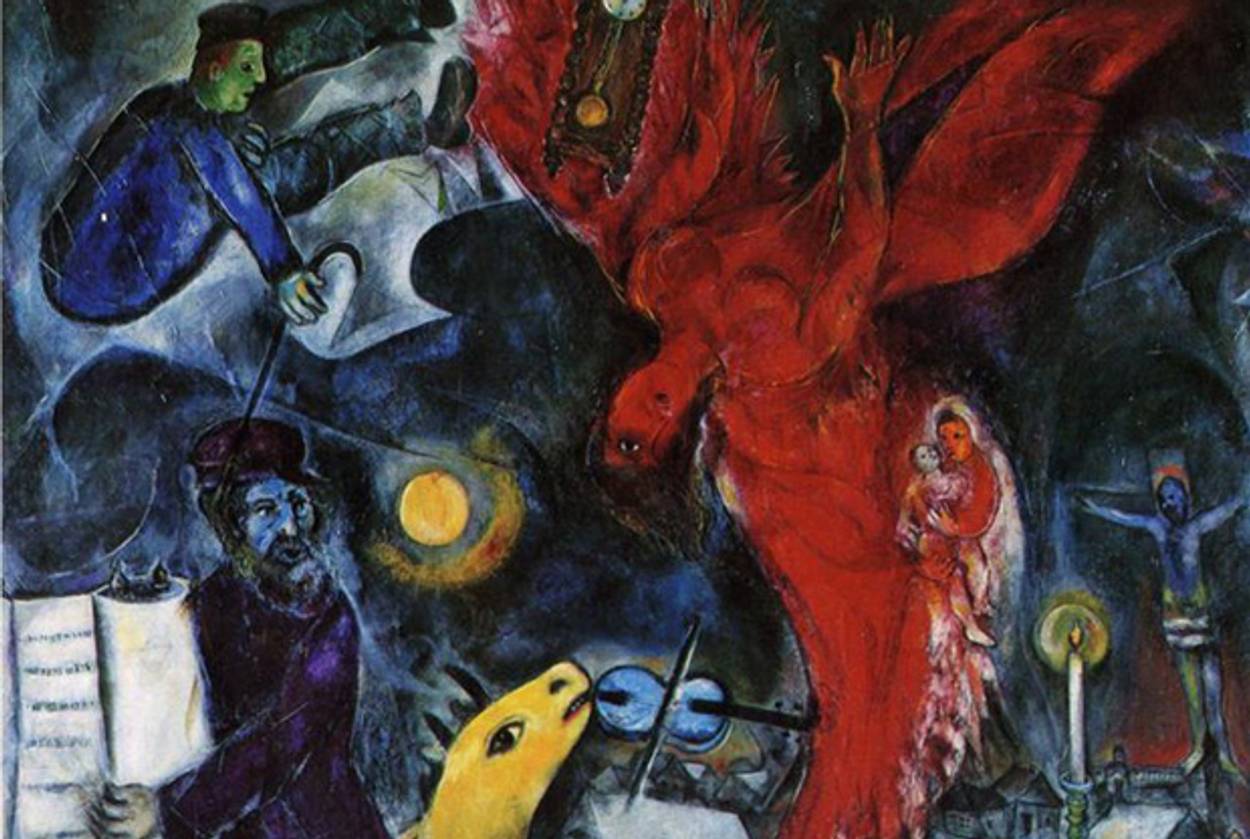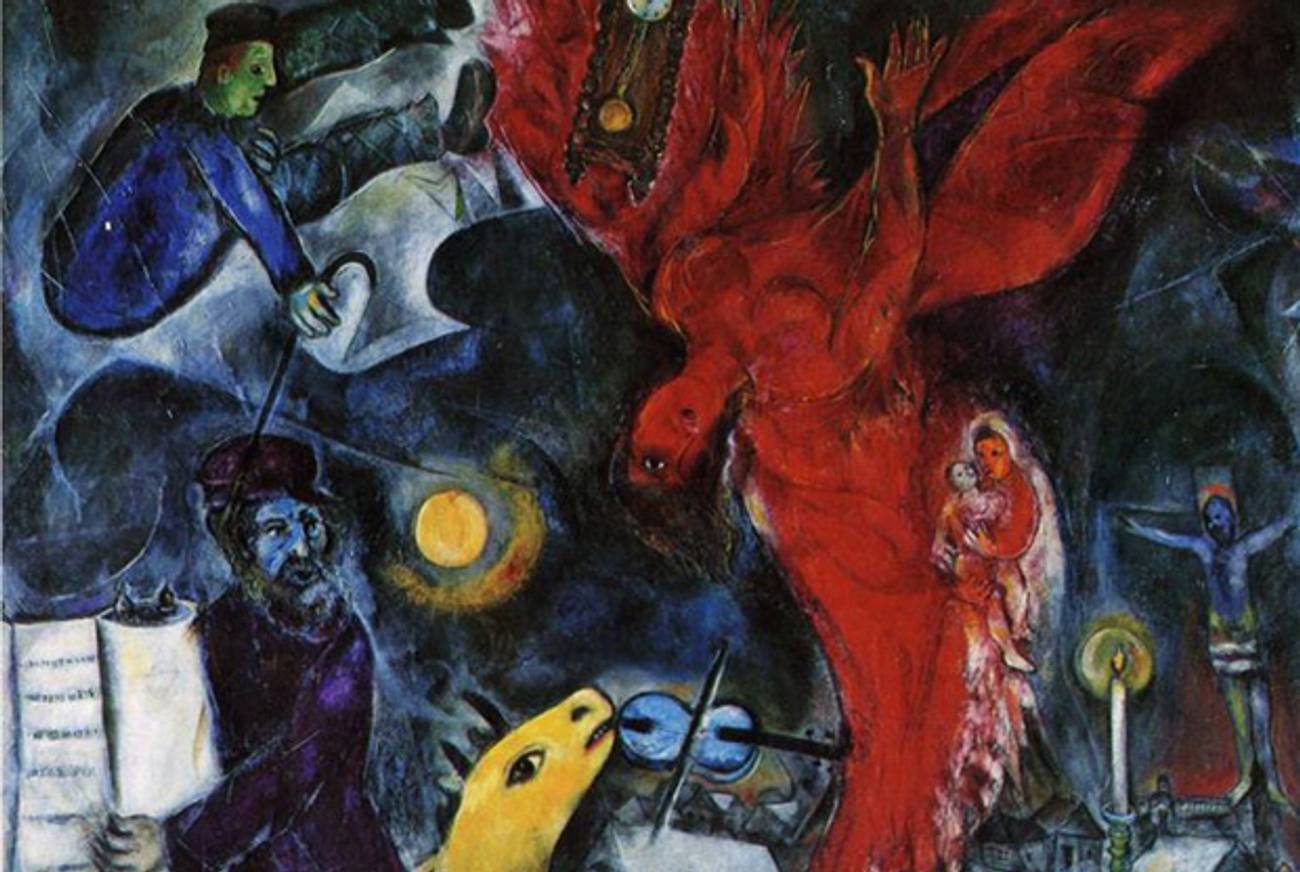Hey, Putin: Lay Off the Chagall
The Jewish master is as Russian as a Big Mac




Dear Vlad,
I know you’re probably miffed we didn’t cover your Olympiad—massive, costly, catastrophic bouts of propaganda are sadder than a stray dog in Sochi unless everyone watches and oohs and ahs—but we really had no interest in encouraging anyone to watch any part of it. And we didn’t. We didn’t even watch the reportedly absurd closing ceremony yesterday.
But reports from it left me with one more thing to say about your sad display of national insecurity.
Look, it’s okay for you to play Rachmaninoff, even though walking my dog every day down West End Avenue I pass the plaque on number 505 informing me that here lived the great Sergei, having escaped Russia when the men who formed you and your regime started hunting down men like the great pianist and composer you now claim as Mother Russia’s. Fine. Whatever. But that bit with the Chagall painting? Stop it. Marc Chagall doesn’t belong to your Russia any more than losing a quarter of the male population to alcoholism before the age of 55 belongs to our America.
First of all, Chagall was born in Belarus, which was part of the Russian empire just like Boston once belonged to the British crown. When the time came for the young artist to go to school, he couldn’t, because Russia—then as now in the business of oppressing minorities—decreed that Jews hadn’t the right to education. After a stint in a local Jewish seminary, Chagall’s mother bribed the headmaster of the local school to overlook the anti-Semitic regulations and let her son in; then as now, corruption was a national pastime in your parts. Oh, and guess what this proud son of Russia did as soon as he humanly could? He got the hell out of Russia, never—with one brief exception, having to do with the artist’s longing for his fiancé—to live there again.
So as you chose to conclude Sochi by evoking Chagall, let us do the same: Accompanying the now world-famous painter on a visit to his homeland in the early 1970s, a young employee of the Soviet Ministry of Culture had the opportunity to ask Chagall why he’d left Russia. “I left,” he told her, “because there were no colors.”
Amen to that. And good luck with draining whatever color still remains out of Russia; to hear the brave women of Pussy Riot tell it, you’re doing just fine.
Related: Why We Won’t Be Covering Sochi
Liel Leibovitz is editor-at-large for Tablet Magazine and a host of its weekly culture podcast Unorthodox and daily Talmud podcast Take One. He is the editor of Zionism: The Tablet Guide.